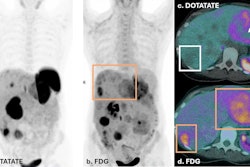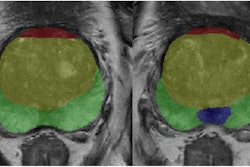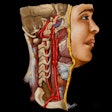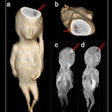More in Home
10 top predictions and forecasts for 2026
January 7, 2026
ChatGPT-generated consent forms prove value
January 6, 2026
Low-field MRI shows promise for postmortem fetal exams
January 5, 2026
EBR unveils 2026 schedule for EDiR examination
January 2, 2026
Europe has highest global gadolinium levels in tap water
January 2, 2026
Swiss-led team shines light on training in prostate MRI
December 23, 2025
T1/T2-weighted MRgFUS ratio imaging improves brain lesion contrast
December 22, 2025
Dark-field radiography improves detection of pneumothorax
December 22, 2025
Why we must celebrate Charles Joslin's remarkable life
December 19, 2025
MRI safety and radiation-induced cancer risks dominate in 2025
December 18, 2025

























